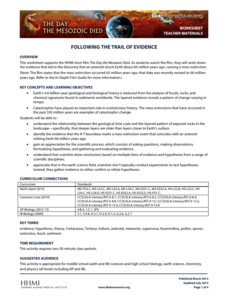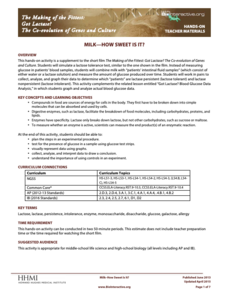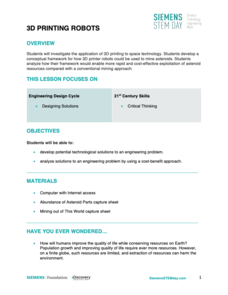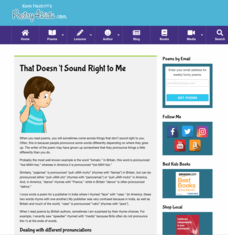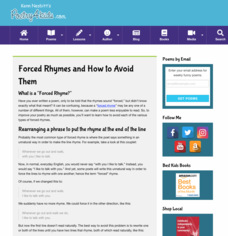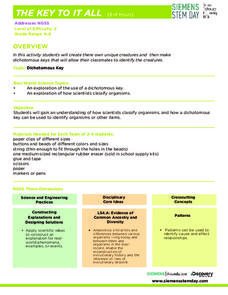Howard Hughes Medical Institute
Pulse Chase Primer: The Meselson-Stahl Experiment
Experimental design can make or break an experiment. Young scholars analyze the pulse-chase analysis procedure by studying the Meselson-Stahl experiment. Using a video presentation, they discover how the pulse-chase analysis led to the...
Howard Hughes Medical Institute
Discovering the Wallace Line
When studying locations of specific species, interesting patterns emerge. Young scholars discover this as they plot the location of specific species on a group of islands. Patterns emerge as they identify the Wallace Line. They then...
Howard Hughes Medical Institute
Fact Patterns: A Film Guide
What does it take to create a scientific theory? Learners attempt to answer the question by studying the work of Charles Darwin and Alfred Russel Wallace. While watching a video, they track observations from each scientist and then look...
Howard Hughes Medical Institute
West Nile Virus: Vectors and Hosts Game
The spread of an infectious disease can be a complicated process. Using a game approach, learners reenact the spread of the West Nile virus. They learn the need for the vector in transmitting the disease and how different organisms react...
Howard Hughes Medical Institute
Cancer Discovery Activities
Explore the genetic component of the second-leading cause of death in the world using a hands-on activity. After watching a video discussing the basics of cancer, learners complete activities that study the genes involved in cancer. The...
Howard Hughes Medical Institute
Mapping Genes to Traits in Dogs Using SNPs
Genetic analysis has gone to the dogs! Learners use real DNA information collected from dog saliva to study the relationship between genotypes and phenotypes. They analyze alleles to determine correlations to coat color, length, and...
Howard Hughes Medical Institute
Following the Trail of Evidence
One important skill in analyzing scientific evidence is identifying facts versus opinions. Scholars identify pieces of evidence from the film The Day the Mesozoic Died and then discuss this evidence in small groups at the end of each act...
Americans All
A Simulation: The Peopling of America
What was it like to pass through Ellis Island? Learners move through the immigration process of the early 1900s in a simulation activity. A comprehensive activity includes role-playing profiles and other manipulative items such as...
Howard Hughes Medical Institute
Pedigrees and the Inheritance of Lactose Intolerance
What, exactly, causes lactose intolerance? Scholars view a video describing a Finnish study that determined why some people are tolerant while others are intolerant. They then use the data from the study to reenact the experiment and...
All for KIDZ
The Orphan of Ellis Island
Everyone comes from somewhere. An interdisciplinary lesson on Elvira Woodruff's The Orphan of Ellis Island includes discussion starter and writing prompts for the novel, as well as a graphic organizer to help learners begin their own...
Discovery Education
It's Melting!
It's a race to the finish! Which ice cube will melt the fastest? Scholars discover the effect thermal energy has on melting ice. They experiment with melting ice cubes on different materials and learn that even at a consistent...
Discovery Education
Cool It!
Adjust the melting time of ice without varying the temperature! Learners experiment with different materials to decide how the materials affect the rate an ice cube melts. They then connect their findings to the conductivity of each...
Howard Hughes Medical Institute
Milk—How Sweet Is It?
Have you ever wondered why some people are lactose intolerant? Participants test simulated patients in a hands-on lab activity to find out! They learn about lactose intolerance by performing an experiment, analyzing data, and drawing...
DiscoverE
Design a Wind Turbine
Discover the power of wind energy. Learners design, build, and test wind blades in a hands-on experiment. They analyze the results to determine if they can make any improvements before gathering as a class to discuss their designs.
Discovery Education
3D Printing Robots
What is water worth to you? The answer probably depends on many different variables. Learners explore the value of water in space and what it takes to transport the resource to locations in a galaxy far far away. They then consider...
Discovery Education
Artificial Intelligence
What makes human interaction different from interaction with computers? Learners consider the question as they build Turing tests to determine whether a computer thinks like a human. They begin by looking at current versions of Turing...
Discovery Education
The Time of Our Life
Mammals are some of the newest organisms to appear on Earth. Young scholars complete an activity that results in a timeline showing the appearance of different types of living organisms. Provided with a list that spans from prokaryotes...
Discovery Education
Stomp Rockets
Watch the excitement grow as learners experiment with homemade rockets. Pupils create their own rockets from a soda bottle and experiment with launch angles. They discover the launch angle has a significant effect on the distance the...
MENSA Education & Research Foundation
Inside Out Fun!
It's amazing what you can do with a little bit of soap, baking soda, and corn starch. Follow the directions in this packet, mix up a batch of fun, and turn young scientists and artists loose to experiment and create chalk, paint, and...
Poetry4kids
That Doesn’t Sound Right to Me
Does pajamas rhyme with llamas to you? If it does (and even if it doesn't), an online lesson on rewording poetry for regional pronunciation may be helpful for you and your students.
Poetry4kids
Forced Rhymes and How to Avoid Them
Ready to take your poetry writing to the next level? Use an independent lesson to iron out all those forced rhymes, wrenched rhymes, and near rhymes from first-draft poems.
Poetry4kids
How to Write a Silly Song Parody
Imitation is the sincerest form of flattery—and it's a great way to learn about poetic structure! Young poets use familiar tunes to write a song parody based on straightforward guidelines.
Poetry4kids
Playing With Your Food Poem Lesson
What's more fun than playing with your food? Writing a poem about it! A quick and straightforward lesson guides young writers through the steps of writing a funny, well-structured poem about combining sports and food.
Discovery Education
The Key to It All
Which characteristics make organisms unique? Dichotomous keys simplify the process of classifying organisms by focusing on these unique characteristics. Young scholars learn how to use the dichotomous key flow chart by creating their own...








